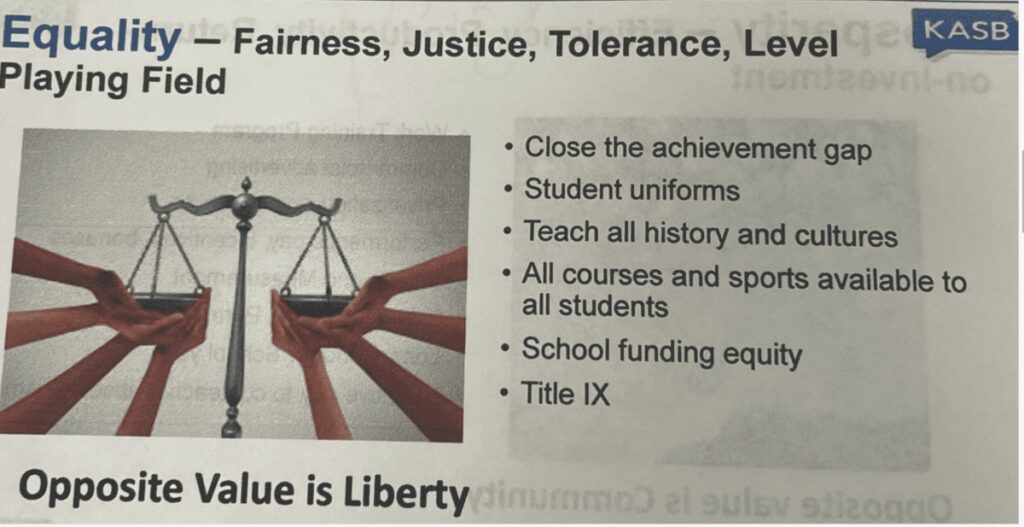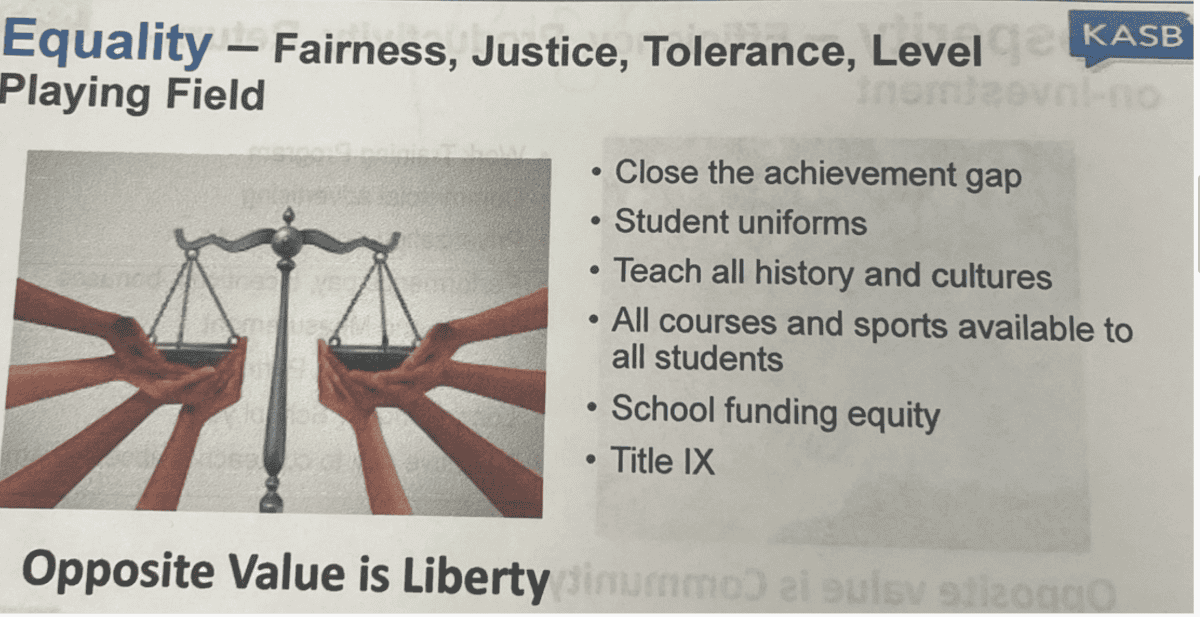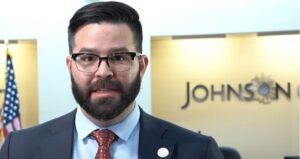Kansas Ed Dept. and Ed Board promote DEI and Critical Race Theory principles
(The Sentinel) – The Kansas State Board of Education told the Legislature that the principles of Critical Race Theory (CRT) are not used in schools, but in December 2023, KSBOE approved a…

(The Sentinel) – The Kansas State Board of Education told the Legislature that the principles of Critical Race Theory (CRT) are not used in schools, but in December 2023, KSBOE approved a contract with a company that says most teacher prep programs are “significantly whiter than the public school population.”
Board members may not have known about The New Teacher Project (TNTP) views on “whiteness” as the documentation provided in the Board packet was very generic, saying “Smoky Hill Education Service Center will contract with The New Teacher Project (TNTP) to initiate statewide support for High Quality Instructional Materials (HQIM) as we look to strengthen quality instruction in Kansas.”
TNTP published “A Broken Pipeline” in 2020, which included these findings:”
- Teacher preparation programs are significantly whiter on average than the public school population.
- Teacher prep diversity gaps exist in almost every state.
- A significant percentage of programs serving a significant number of future teachers are more than 90 percent white.
- Alternative certification programs are significantly more diverse than traditional programs.
The Sentinel asked TNTP for research justifying its recommendation to hire teachers with preference for the color of their skin rather than their effectiveness will improve student outcomes, but they did not respond.
KASB tells local board members that liberty is the opposite of equality
Further evidence that the Kansas public school system is pushing the principles of CRT via Diversity, Equity, and Inclusion (DEI) programs was on display last week at the Kansas Association of School Boards (KASB) annual conference. This is the description for a session entitled “Decoding DEIB:”
This presentation aims to decode the complex concepts of Diversity, Equity, Inclusion and Belonging (DEIB), providing participants with a comprehensive understanding of each element and how they connect. Through interactive discussions and real-world examples, participants will gain insights into the importance of DEIB in creating equitable and inclusive environments. Practical strategies for integrating DEIB principles into organizational culture and practices will be shared, empowering participants to champion diversity, promote equity, foster inclusion and cultivate a sense of belonging for all individuals and communities.

DEI promoters claim it will improve student outcomes by making students feel more welcome, but there is no evidence to support such a claim. In fact, student outcomes for Black and Hispanic students have declined in Kansas.
Proficiency levels in Math and ELA are mostly below 20%, and the percentage of students below grade level is alarmingly high. For example, 42% of Black students were below grade level in Math in 2015; it was 50% in 2019, and now 57% are below grade level.
The DEIB presenter shared slides showing that Liberty, characterized by Freedom, Choice, Opportunity, and Individuality, is the opposite of Equality, described as Fairness, Justice, Tolerance, and a Level Playing Field.
The presenter and KASB apparently oppose magnet programs, online learning, open enrollment, homeschooling, all forms of school choice, and even local control.


Local school board members were also instructed that Prosperity is the opposite of Community. KASB apparently believes that work training programs, performance pay, school/business partnerships, and, of course, testing and measurement are bad things.


KASB also declined to respond to The Sentinel’s questions about the presentation.
Dave Trabert, CEO of The Sentinel’s parent company, Kansas Policy Institute, says these examples continually demonstrate that school administrators and state officials are not honestly dedicated to resolving the state’s student achievement crisis.
“KSDE, the State Board of Education, and others may want to see better outcomes, but they seem unwilling to change their behaviors for that to happen. State School Board members know from two audits that school districts are not using over $500 million in At Risk funding to provide “above and beyond” services for students at risk of failing as required in state law but have refused to take action for several years. A state law requiring the State Board to have an accreditation system based on improving achievement levels is also ignored.
“Hopefully, the newly-elected board members will begin holding school districts accountable. Until then, nothing will change.”



